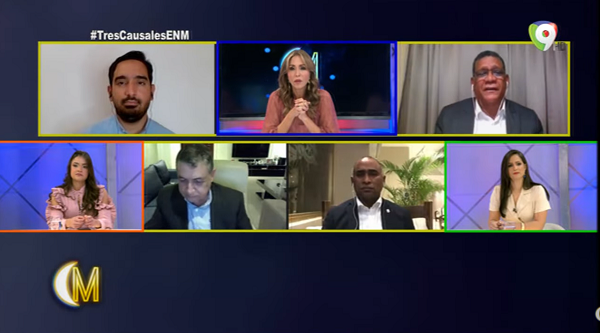
The 2015 Constitution bans abortion in the Dominican Republic. Clauses in the Penal Code criminalize abortion here.
President Luis Abinader said in a recent interview with El Pais, the leading Spanish newspaper, that he favors passing the three exceptions to the criminalizing of abortion in the country. Former President Danilo Medina maintained the same position.
Nevertheless, legislators have given in to conservative groups’ pressures, primarily the Catholic and Christian churches in the Dominican Republic. Even with a new majority party in Congress, nothing seems to have changed in Congress today. The Chamber of Deputies’ justice commission is studying the abortion clauses in the Penal Code and is due to give its opinion this week. Then the debates will move to the assembly hall for a vote.
To understand the evolution of the abortion issues in the Dominican Republic, backtracking to 2014 is needed. In December 2014, former President Danilo Medina (PLD) had enacted the reform of the Penal Code (Law 550-14) decriminalizing abortion in three circumstances: when the woman’s life is in danger, in case of rape and incest, and when there are clinically verifiable malformations of the fetus incompatible with life. This reform represented a great step forward in guaranteeing access to legal and safe abortion in the country for all women.
Subsequently, conservative groups filed three unconstitutionality lawsuits against the Penal Code articles that regulated these grounds, which would have entered into force in December 2015. However, and regressively, the Constitutional Court accepted the conservatives’ arguments and with the decision restricted women’s access to safe abortion services, in the previously established cases. The criminalizing of abortion was maintained and the law establishes penalties of up to 20 years in jail in abortion cases.
A televised half-hour debate on Esta Noche con Mariasela (Channel 9) on 2 February 2021 evidenced how politicians speak up in favor of the three exceptions but then contradict themselves with their actions. Gustavo Sánchez (Dominican Liberation Party – PLD), Julio Fulcar (ruling Modern Revolutionary Party -PRM) and Ruben Maldonado (People’s Force -FP) backed the position for a separate bill.
On the TV program, nevertheless, Gustavo Sánchez and Jose Horacio Rodriguez of Alianza País – AlPais) advocated for eliminating the mention that criminalizes abortion in the Penal Code in order to vote for the separate bill on abortion.
Gustavo Sánchez explained that the solution proposed to just open debates on the three exceptions to criminalizing abortion in a separate bill would mean criminalization of abortion would continue as at present. He forecast the bill would never pass in Congress. Jose Horacio Rodríguez of Alianza Pais has also said the proposed bill is “a pacifier.”
Julio Fulcar of the ruling PRM and Ruben Maldonado, formerly of the PLD and now of the FP of former President Leonel Fernández, argue the country needs a new Penal Code and this will not pass if the abortion exceptions are included in it. José Horacio Rodríguez of Alianza País on the recent TV program with Mariasela Alvarez, Diana Lora and Camila García said this is not necessarily true. He said the procedure for voting on each article of the code could be used and legislators could just vote to include or not the 107-110 clauses on abortion.
The televised debate ended with the note that the solution would be to simply take out the criminalizing of abortion from the Penal Code and deal with it in a separate bill. If that bill never passes, at least abortion would no longer be subject to sentences in jail for the mother or physicians involved, reducing maternal mortality in the country. It is estimated that 90,000 abortions are carried out a year at a major risk to the life of the mothers.
Wikipedia explains well the situation of abortion in the Dominican Republic. It states:
“Abortion in the Dominican Republic is completely illegal. The Dominican Republic is one of the few countries of the world which have a complete ban on abortion, without an exception for saving maternal life.
“Abortion has been constitutionally prohibited since 18 September 2009, when a constitutional amendment declaring the right to life as “inviolable from conception until death” was approved in Congress by a majority vote of 128 to 34. Up until October 2012, women could come forward for treatment without fear of being arrested. Dr. Milton Cordero [he passed away in 2019] has been working since 1980 in the republic’s public hospitals, treating women who have abortions: he estimates that there are 90,000 illegal abortions per year. These illegal abortions are self-induced or done by a back-alley practitioner. Since the law was passed, abortion has risen to the third leading cause of maternal death in the country.”
Follow the story:
Esta Noche con Mariasela
Reproductive Rights
Present Penal Chamber on abortion
Diario Libre
3 February 2021

